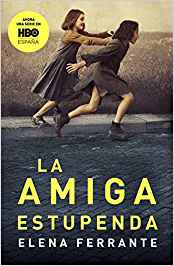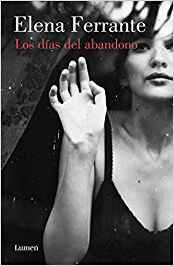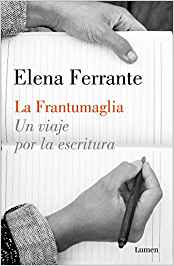For many it is unlikely, to the utmost limits, that someone who achieves the glory of his work does not want to be known, pose on red carpets, do interviews, attend posh galas ... But there is the case Elena Ferrante, the pseudonym that shelters one of the great literary enigmas of our days.
For the author (some investigations of little credit put a real name that was finally discarded), this total cover-up serves the cause of a narrative without the slightest contemplation or concession. Whoever takes the controls of Ferrante enjoys as a creator without complexes or nuances, without that self-censorship (more or less ingrained in each author) between conscience and the notion of the impact of what is written.
There are already many years in which Ferrante has been writing books. And the most curious thing about his case is that little by little his curiosity has been annulled by the value of his novels. There are still those who periodically wonder Who is Elena Ferrante? But readers have become completely used to not putting a face to whoever writes on the other side.
Of course, we cannot rule out that behind this enigmatic editorial procedure some kind of strategy is not hidden with which to arouse curiosity ... If so, let no one be fooled, the important thing is that Ferrante's novels are good. And a good read is never a hoax.
And so the magic you probably always sought is finally produced Ferrante as a person or the Ferrante project. Intimate and at the same time very lively narratives place us in front of hyper-realistic portraits of existence, with a deep look at a twentieth century scene to which the author seems to owe something, or in which something could have been lost. Stories almost always about women, protagonists of love, heartbreak, passions, madness and struggles.
Top 3 recommended books by Elena Ferrante
The great friend
The saga of the two friends, finally made into a tetralogy, is part of this novel. Life in Naples between the 40s and 50s presents that provincial scenario of an atomized Italy in which the capital of Campania.
The camorra, with its atavistic Hispanic origins, continues to be that alternative government from the barrios, marginal neighborhoods in which we find Raffaella Cerullo, or Lila and Elena Greco, known as Lenù. We have known these women from childhood to maturity, a process that in those parts and in those days required a summary adaptation to opt for a minimum of dignified survival.
To be honest, the most satisfactory reading of this plot lies in the interest in the reader's mimicry with that tense environment, with rules around the strongest and the most clever, where the dangers appear even due to the simplest dispute between neighbors. .
Once this penetration into the environment has been achieved, the story involves a dizzying descent into hell in which Lila and Lenù are giving us master classes on resilience and self-improvement. Between the two women an atmosphere is generated that concentrates at times all kinds of complex emotions and sensations, ecstatic at times.
A start to the saga that caught on in millions of readers and that thanks to the accurate use of Ferrante's language, manages to tell us one of those wonderful stories from the crudest reality.
The days of abandonment
Farewells, goodbyes, the most untimely exits occur when one least expects it. That happens to Olga a bad day. The wear and tear of love can be something very true or the most childish of excuses. Mario rediscovers the concept of love and understands that it is no longer what he has.
That kind of natural right between the members of a family is broken for Mario, who does not find meaning even in raising his children. And Olga stays there, like someone who sits in her house looking for a peace that never comes, while the seconds on the kitchen clock ring louder and louder, slower and slower.
The breakup means for Olga a fall to the depths of her being, where fears had been subdued by habit, routine and everyday love. And in the fall she finds no grip. And the more she tries to find new strength, the more they push her towards a bottom without soil. Madness comes on that bad day when absolutely everything loses its meaning.
A plot around despair, loneliness and madness. A story that confronts us face to face in the mirror of the cold of living.
frantumaglia
If anyone can take the license to write about the same creative process of telling a story, that person is undoubtedly Elena Ferrante, the faceless writer, completely dedicated to the dissemination of her work without assuming recognition and success.
That is why I highlight this book, always recommended and perhaps with some revealing detail about the real person behind the pseudonym. One of the books that every aspiring writer today should read is While i write, Stephen King. The other may be this: Frantumaglia, by the controversial Elena Ferrante.
Controversial in several ways, firstly because it was considered that under that pseudonym there would only be smoke, and secondly because it was considered that such a discovery could have been a marketing technique ... the doubt will always be there.
But objectively, whoever is the author behind it, Elena Ferrante knows what she is talking about when she writes, and even more so if what she is talking about is precisely the act of writing. As on many other occasions, it never hurts to start with the anecdotal to go deeper into an issue.
The anecdote in this essay that is going to tell us about the creative process is about the word frantumaglia itself. A term from the author's own family environment that was used to define strange sensations, poorly recorded memories, déjà vu and some other perceptions accumulated in some remote space between memory and knowledge.
A writer affected by this frantumaglia has much gained in that quick start in front of the blank page, these sensations result in profuse and novel ideas on any topic to be discussed or any scenario to describe or any suggestive metaphor to include.
And so, from the anecdote, we approach Elena Ferrante's desk, where she keeps her books, her story sketches and her motivations for writing.
A desk where everything is born haphazard and ends up subjected to an order that ends up opposing chance and inspiration. Because the letters, interviews and conferences that are included in this book were born there, on that sober and magical desk.
And through that almost epistolary narrative we reach the most intimate level of the writer, where the need to write, the creativity that drives it and the discipline that ends up riding it all intermingle.




2 comments on "The 3 best books by Elena Ferrante"